If you’re struggling to get a good night’s sleep, you’re definitely not alone. The stresses of modern society have driven millions to the edge of insomnia, from which there seems to be no way back.
Luckily, there are plenty of ways you can improve your sleep hygiene. In this post, we will share 29 strategies that cover everything from your bedroom environment to the activities you engage in right before bedtime.
We’ll also tell you when you should consider seeing a doctor, and which supplements your body might need to restore a healthy sleeping cycle.
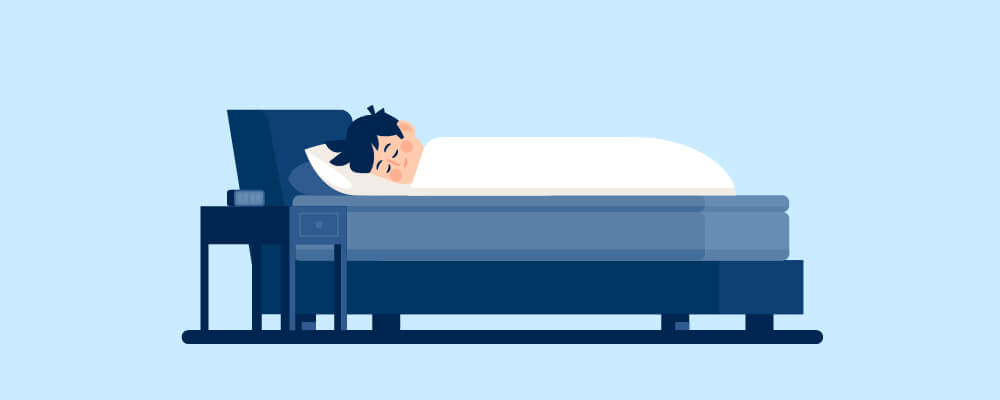
Table of Contents
29 Tips For Better Sleep
Before we start, you should know that all of the tips below take time to work, so you probably won’t notice tangible results on your first attempt.
Be patient, stay determined, and don’t be afraid to experiment; before you know it, you’ll be drifting off to slumber and getting a full night’s worth of restful sleep.
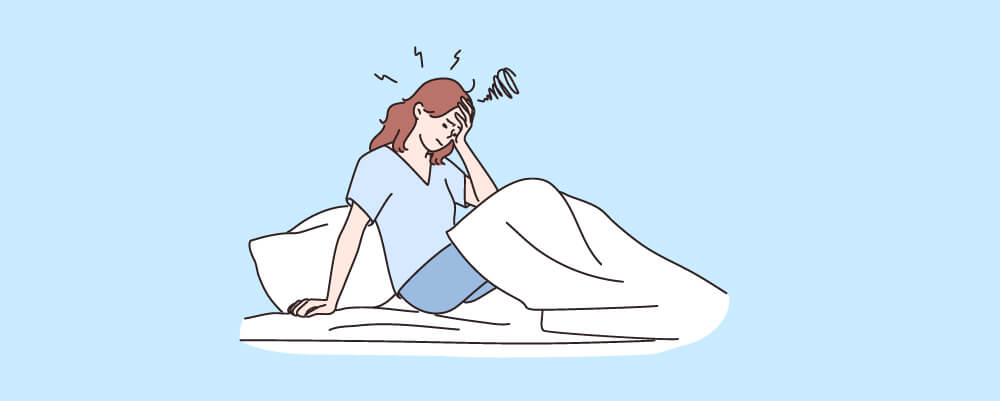
1. Avoid Long Naps
To improve your sleep quality at night, it’s essential to avoid taking long naps during the day. That’s because entering the deeper stages of sleep while napping can disrupt your normal sleeping cycle.
So, instead of going down for a power nap, find other ways to give yourself an energy boost when you need it.
Light exercise, such as a walk outside is a great alternative to napping — it will get your blood flowing and pump it full of oxygen, which will help you restore alertness.
If you absolutely need some shuteye during the day, try to keep your naps shorter than 20 minutes.
2. Shut Off Your Gadgets One Hour Before Sleep
One of the simplest yet most effective ways to set yourself up for better sleep is to turn off all of your electronic devices at least an hour before bedtime. This includes televisions, tablets, phones, and anything else that could expose you to a blue light, which disrupts sleep by blocking melatonin production.
Instead of focusing your attention on devices, you can try other activities that don’t involve looking at a screen. Reading, journaling, meditating, or reflecting on your day with your partner are all good choices.
If you absolutely must use a device shortly before going to bed, ensure you’ve got the “night mode” function switched on. This will protect you from the blue light the screen would normally emit.
3. Set And Maintain A Sleeping Schedule
Establishing a routine and sticking to it is essential for maintaining a healthy sleeping cycle. Ideally, you should try to create predictable sleep patterns; this means going to bed and waking up at the same time, even on weekends when you may be tempted to sleep in or stay up late.
You may find it challenging to consistently rise right when your alarm clock goes off, but adhering to a set morning schedule is as important as heading to bed at the same time every day.
A great way to get out of bed without excessive snoozing is to spend time in natural light shortly after waking up. Open your blinds or curtains and allow yourself to wake up naturally.
Understandably, this may be impossible during winter, so investing in a natural light lamp may help you get through dark, dreary mornings.
4. Don’t Change Your Sleeping Schedule Abruptly
It’s critical to be kind to yourself and remember that any type of progress takes time to achieve.
That’s why it’s generally recommended that you aim to alter your sleep pattern by around 1-2 hours at a time. This can streamline your body’s adjustment period and allow you to see small, but tangible benefits of changing your routine.
5. Move the Clock Where You Can’t See It
To reduce sleep disruptions, avoid checking the time when you awake during the night. Looking at the clock can stress you out about your sleep quality and the imminent alarm, which, ironically, will make restful slumber even more difficult.
This is more of a psychological challenge than anything else, so don’t simply trust your willpower — make sure the clock is out of your sight. You can physically move the clock somewhere where you can’t see its display, or you can use a blanket or towel to cover it up.
And if you’re wondering whether this applies to your smartphone; well, those don’t belong in your bedroom at all.
6. Use A Leg Pillow
Comfort is key to a good night’s sleep, and a leg pillow can be your saving grace when it comes to maintaining proper posture and easing back pain. Maximising comfort by supporting joints correctly can help you fall asleep easier, as you won’t be as focused on sources of pain that emerge because of your sleeping position.
If you sleep on your side, putting a leg pillow between your knees can improve the alignment of your hips. In turn, this lowers the amount of stress on your lower back and alleviates the pain there.
Similarly, if you sleep on your back, you can easily support your knees by putting a soft pillow underneath them.
If you’re experiencing back pain despite sleeping with a leg pillow, it’s best to consult a physician.
7. Give Your Neck Adequate Support
Do you find yourself waking up with a sore or stiff neck? If you do, it could be worth finding a pillow that can support your neck properly in your preferred sleeping position.
As a side sleeper, you’ll know that your neck is supported well if your nose is aligned with the centre of your body.
Sleeping on your stomach isn’t great for your neck muscles, but if this is your favoured position, it could be worth doing some back and body stretches before bed and after waking up.
8. Invest In A Comfortable Mattress

There’s no point in trying to sleep in an uncomfortable bed. It could be worth heading to the nearest furniture shop and trying out different types of mattresses to see what firmness works best for you.
It is also worth finding the right type of pillow. Consider your sleeping position and use this to establish the amount of support that your neck requires. People who sleep on their stomachs typically require very thin pillows, whereas side sleepers need pillows that are specifically designed for that position.
9. Clean And Protect Your Mattress
If you suffer from allergies, your mattress could be a source of irritants that keep you up at night.
Mattresses can collect dust and pet fur, and in the worst case scenario, they can become infested with bed bugs, fleas, and mould. These could ruin your sleep, cause your allergies to flare up, and irritate your respiratory tract, so make sure you clean your mattress regularly.
For best results, you may choose to seal the mattress altogether.
10. Keep Your Pets Out of Your Bed
Tonnes of people suffer from pet allergies without knowing it. What’s more, pets may move around in their sleep and inadvertently wake up their owners, or prevent them from assuming a comfortable sleeping position.
So, if you share your bed with a pet and your sleep quality is poor, try spending a few nights without your furry friend to see if you sleep better.
11. Learn To Associate Your Bedroom With Relaxation
If you want to build a healthy sleeping routine, your mind needs to associate your bed — and your bedroom as a whole — with nocturnal activities.
To this end, don’t use your bed for anything other than sleep or sex.
Try to avoid spending time in your bed during the day, especially if you work from home — the worst thing you can do is train your mind to think of the bed as your office. That said, even activities like watching TV or reading an exciting novel should take place on your sofa rather than the bed.
12. Dim The Lights Before Bedtime
Bright and blue lights suppress the production of melatonin, a hormone that makes us sleepy. So, if you’re trying to improve your sleep quality, make a habit of using only warm, dim lamps and turning the main overhead lamp off at least two hours before heading to bed.
13. Optimise Your Current Bedroom Environment
Good sleep hygiene starts with your surroundings. Try to block out all noise from your bedroom, both external and internal.
Car traffic and loud neighbours can be huge contributors to a poor night’s sleep. Loud radiators, fridges, or snoring partners can also be loud enough to make deep sleep impossible.
Challenging as it may be, you must do your best to manage all these sources of noise.
Soft furnishings can help absorb some natural noise, whilst thick curtains can act as a buffer between your bedroom and the outside world. If your window overlooks street lights, or if you don’t want to wake up at sunrise during the summer months, heavy curtains will also do a great job of keeping light out of your room.
If these strategies don’t help, consider buying quality ear plugs.
14. Stick to Light Snacks Before Bedtime
It’s easier said than done, but it’s best not to consume foods that are high in sugar and salt an hour or so before your regular bedtime. Heavier foods can overload the digestive system, so your body will still be hard at work when you’re trying to fall asleep.
A good rule of thumb is to avoid eating heavy meals before bed and to stick to lighter snacks, such as crackers, cereal, nuts, berries, and fruit, if possible.
15. Avoid Drinking Alcohol Before Sleep
Just like heavy meals, alcoholic drinks can be disruptive to sleep.
Beverages such as wine, cider, and cocktails have a high sugar content which can lead to significantly lighter sleep that night, and contribute to fatigue the following day. That’s why it’s wise to create an interval between your last alcoholic drink and switching off the bedroom lights.
Likewise, avoid using small amounts of alcohol to help you fall asleep; doing so can actually make you more alert once the initial, calming effects have worn off.
Milky beverages and herbal teas generally work best as pre-bedtime drinks.
16. Limit Your Intake of Liquids Immediately Before Sleep
Nighttime bathroom trips could be a reason you’re struggling to stay asleep. Switching on the bright bathroom lights and leaving your warm bed can make you more alert, which makes it more challenging to fall back asleep.
If this sounds like something you’re going through, try to reduce the amount of fluids you’re consuming two hours before heading to bed.
And to make sure that your beeline to the toilet doesn’t disturb your slumber more than it should, try to use a nightlight instead of your lamps.
17. Avoid Caffeine Before Bedtime
Caffeine is a stimulant that increases mental alertness and raises the blood pressure and heart rate. For these reasons, caffeinated beverages can be a godsend when we’re trying to shake off drowsiness in the morning.
But for the same reasons, they can wreak havoc on our sleeping cycle, and should thus be avoided after dinner time.
Alas, it’s not always easy to know if a particular snack or beverage contains caffeine.
For example, coffee, and green tea are some of the more obvious drinks with a high caffeine content. However, certain caffeinated teas — like jasmine — may be less obvious culprits.
Likewise, hot chocolate, chocolate bars, or any other sweets containing the delicious substance have a caffeine content, as do various carbonated drinks.
Finally, it’s also worth taking a closer look at certain pain relievers and other medications, as some of them may contain caffeine.
If you want to eliminate the risk of inadvertently consuming caffeine before sleep, go through all the food and beverage items in your home and confirm whether they have a caffeine content.
18. Hit The Gym Earlier In The Day
While regular exercise has been proven to improve regular bodily functions and sleep quality, it’s worth allowing 3-4 hours between the end of your workout and heading to bed. That’s because the energy boost we get after exercising can actually keep us awake at night.
Try to create an exercise routine that works for you and your sleep schedule, and your body will get the opportunity to repair itself without cutting into designated sleep time.
19. Don’t Smoke Before Going To Bed
Nicotine can make the brain more alert, which is why it’s highly recommended that you avoid smoking before going to bed. Like caffeine, tobacco is a stimulant that can lead to insomnia and affect the quality of sleep and hamper your ability to drift off.
Of course, tobacco is also extremely damaging to your health and it’s best to abstain from it altogether. However, it could be worth it to at least avoid tobacco several hours before sleep if you’re not ready to quit completely.
20. Get A Handle On Stress
In addition to device screens and loud noises, the ‘noise’ of the day can keep your mind from switching off as you’re trying to drift off. You should try to manage stress throughout the day, but crucially, you need to find a way to slow your mind down before going to sleep.
Meditating or taking a warm bath can help you tame your thought cycle and get it to decelerate.
And if you feel that an overactive mind keeps you from falling asleep, writing down your thoughts is an excellent way to put them away for the night instead of taking them to bed.
Getting enough sleep and taking the time to calm your thoughts after a busy day can free your mind. In turn, a free mind lets you focus on the things you love and makes it easier to drift off each night.
21. Get Lots Of Bright Light During the Day
This tip may seem strange, but your circadian rhythm stays on track when you get plenty of natural bright light during the day. In fact, increased exposure to bright light has been shown to improve people’s ability to fall asleep and increase sleep duration.
To this end, you should try to get lots of sunlight during the day; doing so will allow your body to figure out when it’s time to sleep in the evening.
If you live somewhere without a great amount of natural bright light, it could be worth purchasing a light box or panel so that you could maintain your body’s natural circadian rhythm.
22. Supplement Your Diet With The Right Minerals
If your body is lacking magnesium, calcium, and potassium, you could find yourself struggling to settle in for the night.
So, if you’re not content with the duration or quality of your sleep, or if you struggle to drift off, you should consider taking dietary supplements with these minerals. Of course, it’s also wise to do some research and find out which food is rich in these minerals, and try to tweak your diet accordingly.
You could also consider taking melatonin supplements in order to encourage better sleep. People who suffer from insomnia have benefitted from taking melatonin supplements, and it could be worth researching the effects.
Generally, taking 0.5-10 mg of melatonin supplements per day can help people get past the first barrier and actually fall asleep. However, melatonin supplements are not recommended for people suffering from bleeding disorders, depression, and high blood pressure.
23. Be Careful When Using Sleeping Pills
While sleeping pills are an effective way to ward off insomnia for one or two nights, avoid becoming reliant on them to sleep well. Sleeping pills are not supposed to be a permanent fix, and you should speak with your doctor if you find yourself using them on a regular basis.
It’s also vital to be cautious with sleeping pills due to the range of their potential side effects.
24. Take A Shower Or Bath Before Bedtime
Not only can a warm bath or shower help relax your muscles and make it easier to drift off to sleep, but it’s also easier to be comfortable when you feel clean.
Bathing is also a highly effective way to process the day and wash away some of the things that are on your mind. Another option is to soak your feet in warm water for around thirty minutes before heading to bed.
25. See Your Doctor If You Constantly Struggle to Sleep
If you struggle with sleep on a regular basis and can rule out certain factors in your control, such as noise, comfort, temperature, and stress, you should consider asking your physician for guidance. A doctor can provide valuable tips and even check for symptoms of other conditions.
Make sure that you’re honest with your doctor and disclose all of your concerns during the consultation.
Note that recurring issues with sleep can be a symptom of diabetes, depression, anxiety, physical illness, and certain neurological conditions. For this reason, you should never delay speaking to your GP about your sleeping problems.
26. Keep the Bedroom Cool
There is a delicate balance you should try to achieve when setting the right bedroom temperature.
On the one hand, a cool ambient temperature helps us drift off faster and improves our sleep quality. On the other hand, sleeping in a room that’s far too cold can be uncomfortable and even hazardous for health.
Now, the ideal bedroom temperature is around 18°C. However, whether or not you’re comfortable sleeping in a room this cool will depend on several factors, such as your gender, body mass index, age, medical conditions, and the thickness of the blankets you’re using.
With all these variables, it only makes sense to experiment with the thermostat and see what works. To start, you can try setting the temperature a bit lower than you normally do, and see if your sleep improves. Then, try to adjust the setting until you find that “sweet spot.”
Apart from tweaking your heat controls, you should also consider other factors that can affect the bedroom temperature. These include windows left ajar, duvet thickness, and the material of your pyjamas or sleeping clothes.
27. Use Calming Aromas Before Going To Bed
Another way to create a calming atmosphere in your home and bedroom is to use naturally calming aromas. Lavender, camomile, rosemary, and bergamot are all known to promote sleep and relaxation.
The great thing about these aromas is that they are highly versatile. Depending on your preferred scent, you can spray a mist around the room, light a candle, add a small pouch of dried herbs under your pillow, use a diffuser, or add a few drops of essential oil to your pillow.
28. Don’t Stay In Bed If You Can’t Sleep
If you can’t sleep, don’t stay in bed tossing and turning for hours on end. Doing so can actually create a negative association with your bed and nighttime in general.
If you find yourself awake several hours after you turned the lights off, consider getting up. Even if all you do is go to the toilet, moving away from your bed for a few minutes can make your body realise that you are more tired than you think. This can help you overcome the barrier and finally drift off to slumber.
Another option is to go and make yourself a calming cup of herbal tea. Teas containing camomile are perfect because they’re caffeine-free and can help your brain gradually calm down.
29. Experiment With Different Things
It can take time to figure out which routine works best for you, so it’s worth trying different things. Experiment with bed times, wake up times, and see how your daily caffeine intake impacts your sleep quality.
It could be worth starting a sleep diary. Documenting your experiences will help you track which strategies work and which don’t. Having a record of your sleep journey can also help you speak with your doctor.
Not only that, but your sleep diary can show how long you’ve been taking a proactive approach to creating better evening routines.
If you do start a sleep diary, it’s important that you’re honest with yourself and learn from your mistakes.
Summary
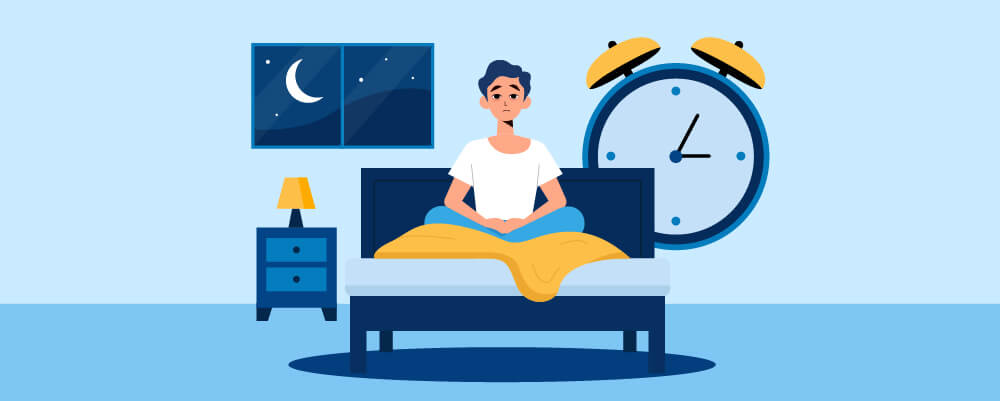
There is an assortment of strategies you can attempt to create better sleep hygiene. Remember to be kind to yourself and be content with making small changes. Taking your time lets you appreciate how each variable contributes to a calming environment in your bedroom.
Most importantly, try to leave your daily stress outside the bedroom door and allow your mind to switch off. With a bit of patience and determination, you will soon be enjoying the benefits of a good night’s sleep.
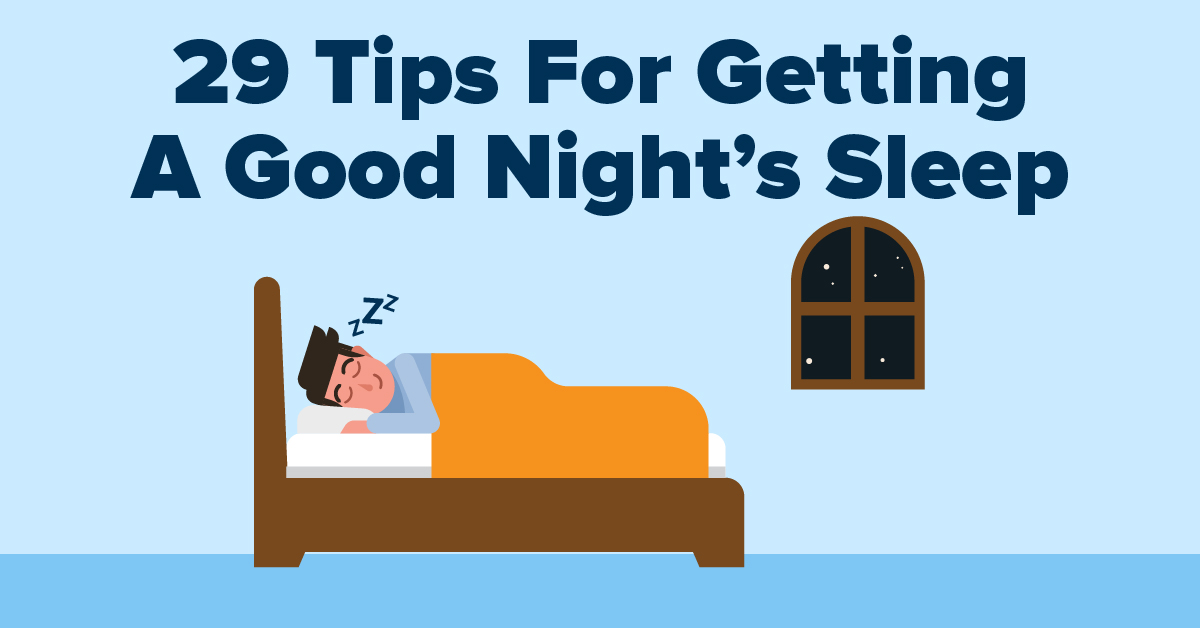

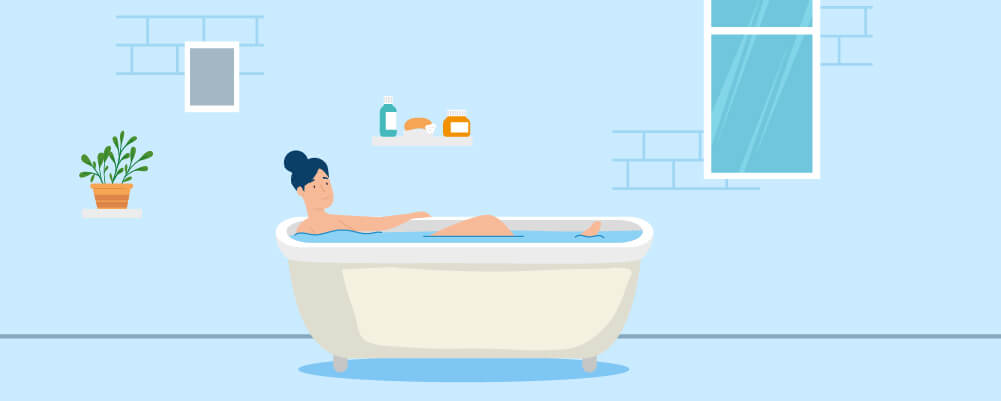
Comments (0)